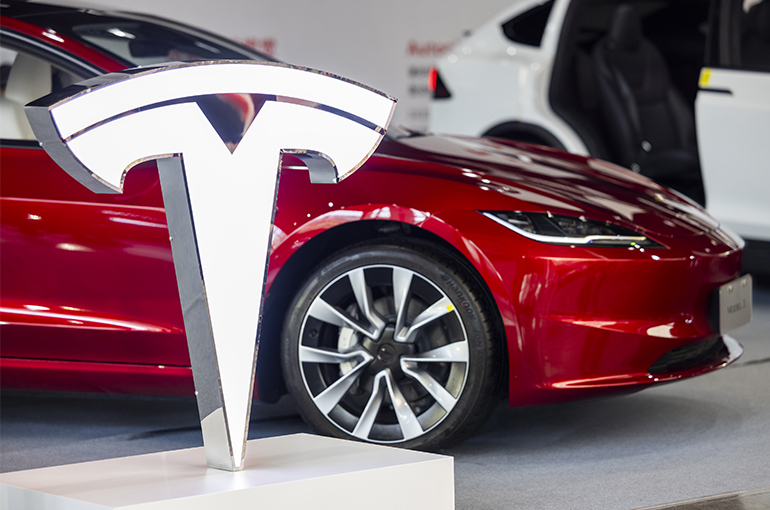 Carmakers Rush to Launch Premium Driving Systems in China as Tesla's FSD Nears Market Entry
Carmakers Rush to Launch Premium Driving Systems in China as Tesla's FSD Nears Market Entry(Yicai) Aug. 8 -- Many automakers are accelerating the release of high-end intelligent driving systems in China after Tesla's Chief Executive Elon Musk said that the US electric vehicle giant's Full Self-Driving system will enter the Chinese market soon.
Xpeng Motors launched the Xpeng Navigation Guided Pilot last month, the Guangzhou-based new energy vehicle startup's full-scenario advanced driving assistant system using an end-to-end large language model.
Mercedes-Benz will begin to equip some new models with the urban navigation on autopilot system starting next year after releasing the high-speed NOA this year, an insider recently told Yicai. The German auto giant is also developing end-to-end assistant driving and automatic parking systems, while cars using its level four autonomous driving got permits for high-speed and urban road testing in Beijing, the insider added.
Huawei Technologies will debut the ADS 3.0, the new version of its high-end smart driving solution, in August, Richard Yu, chairman of the Shenzhen-based tech giant's auto business unit, said at a ceremony for the 400,000th Aito model, a sport utility vehicle co-developed by Huawei and Seres Grou, rolling off the production line and 70,000th Aito M9 being delivered on July 29.
Chinese startups Nio and Li Auto have also announced plans to release end-to-end smart driving systems this year. Voyah, the high-end EV brand under Chinese state-owned Dongfeng Motor Group, and Germany's Volkswagen Group also deepened their cooperation with tech firms such as Huawei and DJI Technology to compensate for weakness in smart driving.
The main reason for choosing high-end Chinese NEV brands instead of established overseas ones is that they have a more advanced autonomous driving function, according to McKinsey China Auto Consumer Insights 2024.
Over four million cars equipped with NOA are set to be available by next year, with a market value of over CNY50 billion (USD6.9 billion), which will grow to over CNY100 billion (USD13.9 billion) by 2027, according to Taibo Intelligence Unit's Smart Vehicle and Urban NOA Market Research Report.
However, most premium assistant driving functions appear on expensive models, with the high entry threshold becoming a major obstacle to their popularization.
Most smart assistant driving system developers are in the phase of exchanging profitability for market shares, Cui Ye, an executive at a Chinese self-driving firm, said to Yicai.
"Models equipped with Huawei's high-end smart driving solution but priced below CNY300,000 (USD41,795) are sold at a loss," Yu pointed out.
Despite Chinese customers paying great attention and accepting smart driving systems, their willingness to pay for them is dropping, the report by Taibo showed.
Editors: Xu Wei, Martin Kadiev